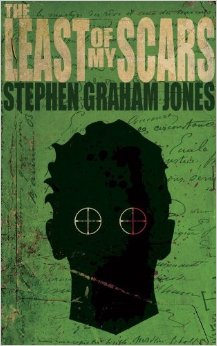

Southern Gods
I met John Hornor Jacobs at ConQuest 44 in Kansas City. He was on a panel I attended and had some things to say about writing that I strongly supported. He spoke a little bit about his debut novel, Southern Gods. I bought it from a bookstore in the dealer room, and made it my next book to read.
Sometimes, you run in to a book that falls directly into your wheelhouse. Researching John Hornor Jacobs, I quickly found that we had similar backgrounds and similar literary interests. His influences were listed on Goodreads as Stephen King, William Faulkner, and Donald E. Westlake. Prior to writing, he was a musician and graphic artist. While none of this specifically explains the appeal of Southern Gods, it definitely sets up a sort of compatibility with a certain writer (me) who would share his influences.
The book description makes Southern Gods sound like a regional Gothic novel mixed with H. P. Lovecraft. I don’t think that is particularly accurate. There is a lot more Stephen King in the flavor than Lovecraft, and while the South is a strong component of the story, the narrative more closely mirrors a pulp crime novel. Bull Ingram, one of the novel’s two protagonists, is a hardboiled character sent in search of a strange, dark musician with the ability to raise the dead and drive men mad. The Lovecraftian elements come in to play with strange books and old gods, who can’t help but involve themselves with humanity. As Vonnegut would say, so it goes.
The story doesn’t feel like a first novel. There are a lot of good things happening. Jacobs has a talent for storytelling. I found the characters and situations to be very interesting. Reviewing the book on Goodreads, one of my friends said after reading the novel, he wondered why he had never thought of it. I believe that is a great compliment to the story. It feels like it could have only been told in one way, as if the story was always there, just waiting to be written. It feels natural and simple, but without roaming into obvious.
I found myself staying up late into the night to finish the novel, which is something I don’t say very often as I get older. I didn’t read anything else from the moment I started the book to the moment I turned the last page, which is also uncommon. It kept my attention and it kept me reading. There isn’t much more you can ask from a book.
There is room for improvement, don’t get me wrong. Technically, the writing is above average, but will no doubt get better. It improved quite a bit between the beginning and end of the novel. However, it’s hard to imagine a better debut novel by a relatively new writer, which is obvious by the Stoker® nomination and the successful sales.
If you are a fan of regional horror and the style of a fifties crime novel, Southern Gods is definitely worth a read. I enjoyed it immensely.
After a bit of a hiatus due to other demands on my time, I have posted a new review at The Confabulator Cafe. This week, I review John Horner Jacobs’s Fierce as the Grave: A Quartet of Horror Stories
, a collection from the author of Southern Gods and This Dark Earth. You can find the review here.






